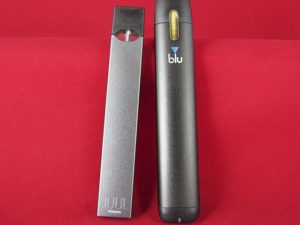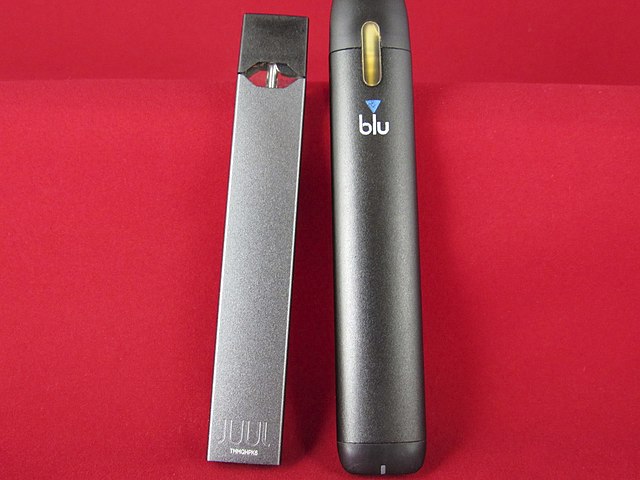
Under its Commissioner Scott Gottlieb, the FDA has taken several steps to address what it sees as an ‘epidemic’ of youth e-cigarette use. On September 12, 2018, it issued more than 1,300 warning letters and fines to retailers who illegally sold JUUL and other e-cigarette products to minors. This was part of its Youth Tobacco Prevention Plan. Twelve warning letters were also issued, as some retailers had ignored previous warning letters issued in May of 2018. One of the FDA’s potential actions was to remove some or all of their flavored products from the market and require a premarket authorization from the agency. It then announced a public hearing was to be held on December 5, 2018 “to discuss the agency’s efforts to eliminate youth e-cigarette use.”
In an embedded YouTube video, JUUL CEO Kevin Burns said their mission was to “improve the lives of the world’s one billion smokers and eliminate cigarettes.” Their intent was never to have youths use JUUL, “but they are.” The numbers tell them underage use of e-cigarette products is a problem they must solve. “For us to successfully fulfill our mission of helping adult smokers, we must be trusted – and we must earn that trust. That starts with action, not words.”
He then announced JUUL”S intent to stop selling flavored products (Mango, Fruit, Crème and Cucumber) in retail stores and only make them available online. They also limited online customers to two devices and fifteen JUUL pod packages per month; and no more than ten devices per year. They planned to strengthen their retail compliance and shut down their social media accounts: “By deterring social media promotion of the JUUL system by exiting our accounts, we can better prevent teens and non-smokers from ever becoming interested in the device.”
We are implementing this plan starting today [November 13, 2018]. We will be a transparent, engaged, and committed partner in this effort with FDA, state Attorneys General, local municipalities, and community organizations. We thank Commissioner Gottlieb for his ongoing leadership on this critical issue. JUUL Labs hopes the components of our plan are implemented industry-wide. If implemented across the category, these actions will have the greatest impact in restricting access and ultimately decreasing underage use, along with 21+ laws on all tobacco products. On that point, JUUL Labs will not only continue to support Tobacco 21, we will actively pursue it by drafting legislation, funding advocacy campaigns, and engaging with lawmakers.
Sounds like JUUL Labs is trying to do the right thing, doesn’t it? Now see this August 10, 2018 video by Vox, “How Juul made nicotine use go viral.” It announced JUUL has taken over about 70% of the retail e-cigarette market. The technological simplicity of JUUL means it looks more like a “cool gadget and less like a drug delivery device.” The JUUL co-founders met at Stanford Design School and one of them worked as a design engineer at Apple. No wonder it’s called “the iPhone of E-cigs.”
The video said current marketing today for JUUL is focused on adult ex-smokers. “But when JUUL first launched, their marketing looked a lot different.” Those ads bear a striking similarity to old cigarette ads. “Both marketed relaxation, sharing, travel, freedom and sex appeal.” Now it is illegal for cigarette brands to use these suggestive advertising themes. But for e-cigarette manufacturers who had products on the market before 2016, “those strategies are still unregulated.” JUUL launched in 2015.
In “Juul’s Convenient Smoke Screen,” The New York Times reported that in 2015, a research and development engineer for JUUL said: “We don’t think a lot about addiction here because we’re not trying to design a cessation product at all. . . . Anything about health in not on our mind.” James Monsees, JUUL’s co-founder and chief product officer said the company was forced to be careful about its marketing. Under federal regulations it is permitted to bill its device as a “switching product” for smokers, “but not as a smoking cessation or health device.” Although JUUL ran ads in the past it would not do today, he said, it always focused on eliminating cigarettes. “Since 2005, we have been focused on creating a product to help people switch away from smoking combustible cigarettes — the number one cause of preventable death in the world.”
But Juul’s public marketing told a different story. Few of the company’s early ads made any mention of cigarettes’ risks, or advocated for smokers to switch; most were focused on playing up vaping’s cool factor. As recently as 2017, the front page of the company’s website said nothing about switching from cigarettes at all, only that the Juul offered an “intensely satisfying vapor experience.”Recently, Juul — now equipped with an army of lobbyists and a slick communications team that includes a former White House spokesman — has studiously revamped its image. Glossy profiles have been written about the company’s “lifesaving mission” and Juul’s new chief executive, Kevin Burns, has gotten on message, emphasizing the company’s focus on adult smokers.
The president of the antismoking advocacy group Campaign for Tobacco-Free Kids, Matthew L. Myers, saw JUUL’s new ad campaign as a P.R. effort aimed at lawmakers and regulators. “”Juul has engaged in all the traditional tactics of a company that is trying to fend off meaningful regulation, rather than actually change their behavior,’ Mr. Myers said. ‘That is classic Big Tobacco.’”
Juul wants you to believe that it became a teenage sensation entirely by accident, that its products were only ever meant for adult smokers and that taking billions of dollars from Big Tobacco is consistent with the values of a company that has always put a priority on health over profits. The truth is much hazier than that.
There was a study published in JAMA Network Open on October 19, 2018 that said adolescent use of pod-based e-cigarettes was increasing rapidly, “and adolescents and young adults report corresponding misperceptions and lack of knowledge about these products.” The researchers reported that only 25% knew all JUULs contained nicotine. Adolescents and young adults were recruited from 10 high schools in California from July 13, 2014 through October 11, 2015. Only 2.5% reported exclusive use of JUULs; 25.2% reported using three products: pod-based e-cigarettes, other e-cigarettes and cigarettes.
The 3 most concerning insights from the data presented here are the high prevalence of co-use and polyuse of pod-based e-cigarettes with other e-cigarettes and traditional cigarettes and the higher proportion of participants who reported past 30-day use together with the much higher frequency of use reported for pod-based e-cigarettes vs other e-cigarettes. These findings point to the potential for greatly increased harm for adolescents and young adults associated with the use of pod-based e-cigarettes, as their still-forming brains are particularly vulnerable to the effects of nicotine, with increased earlier exposure to nicotine being associated in a dose-response manner with deleterious health effects.
Then there was the announcement on December 19, 2018 that Altria, the company that owns Marlboro and is the nation’s largest maker of traditional cigarettes, bought a 35% stake in JUUL Labs for $12.8 billion. Part of the deal was a $2 billion bonus, which will be split among JUUL’s 1,500 employees. According to The New York Times, JUUL Labs will now have access to Altria’s “deep lobbying pockets” and its more experienced government relations team. Altria spent more than $7 million on lobbying in 2018, while JUUL Labs spent almost $900,000.
The New York Times reported how the “F.D.A Accuses Juul and Altria of Backing Off Plan to Stop Youth Vaping.” Scott Gottlieb drafted letters to both companies criticizing them for “publicly pledging to remove nicotine flavor pods from store shelves, “while secretly negotiating a financial partnership that seems to do the opposite.” In October Altria agreed to stop selling pod-based e-cigarettes until it received FDA permission “or until the youth problem was otherwise addressed.”
But the new deal commits the tobacco giant to dramatically expanding the reach of precisely those types of products, by giving Juul access to shelf space in 230,000 retail outlets where Marlboro cigarettes and other Altria tobacco products are sold. (Juul currently sells in 90,000 stores.)It is a development that startled the F.D.A., which in September had threatened to pull e-cigarettes off the market if companies could not prove within 60 days that they could keep the products away from minors. Altria, Juul and three tobacco companies sent the detailed plans spelling out how they would comply with the agency’s request. Now, those plans appear in jeopardy, Dr. Gottlieb said.
In an interview at the Brookings Institution, Gottlieb said the phenomenon of teen vaping was an “epidemic” and suggested Altria reneged on earlier promises to withdraw pod-based products from the market. He said in October of 2018 he asked the e-cigarette industry for a plan to address teen vaping. Altria responded by giving the FDA a 15-16 page letter “saying that they would agree to withdraw their pod-based products voluntarily,” and further stating they would not put flavored products on the market until the FDA approved them. The company then withdrew some of its brands like MarkTen and Green Smoke, while at the same time investing in Juul Labs. Gottlieb said: “I continue to have concerns that some of the activities [Altria is] taking in the market are not necessarily consistent with what they’re telling us.” Then on March 5th, Scott Gottlieb resigned as the FDA commissioner. His last day was April 5th.
JUUL was looking more and more like Big Tobacco; and now it IS Big Tobacco!





